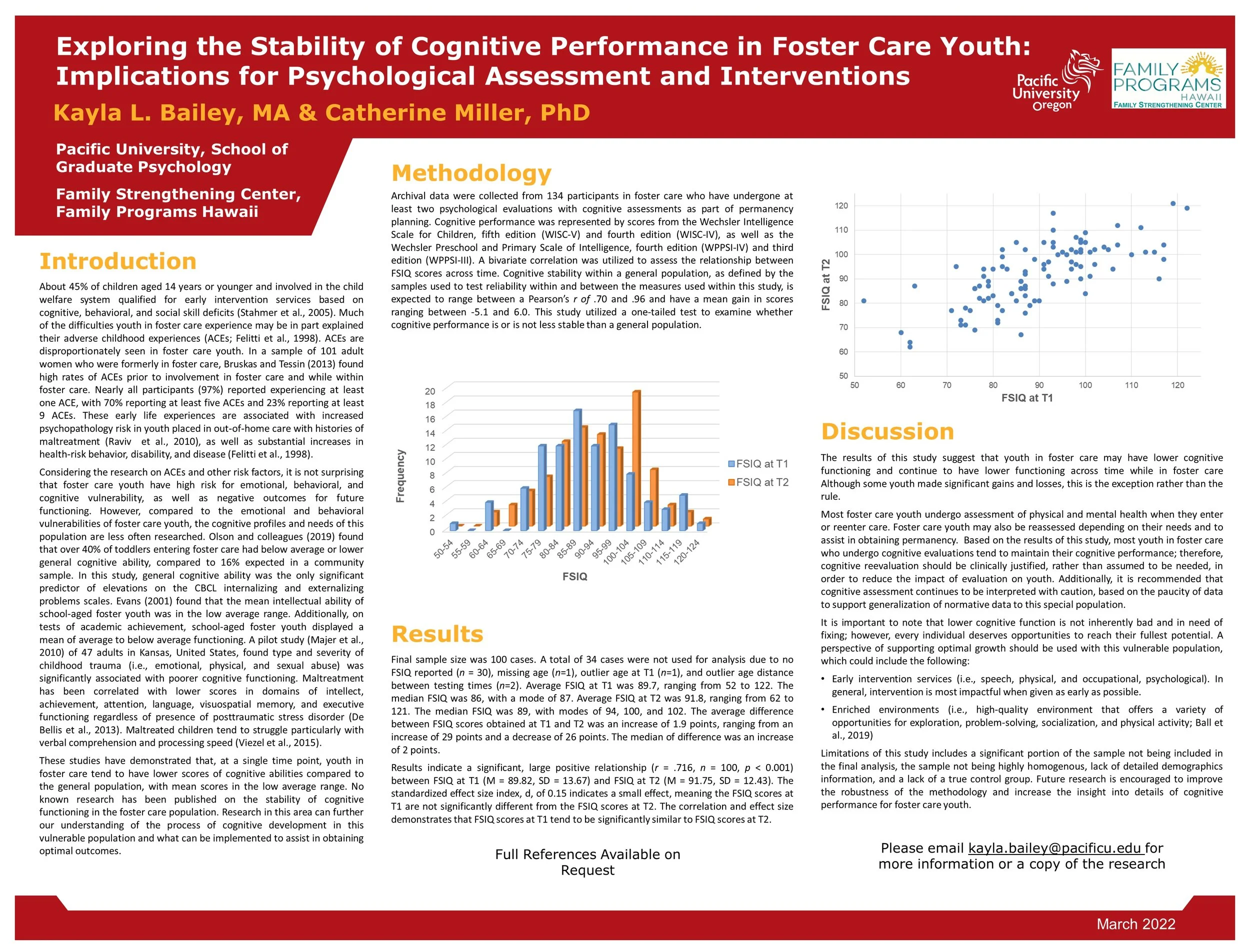Poster #6
Exploring the Stability of Cognitive Performance in Foster Care Youth: Implications for Psychological Assessment and Intervention
By: Kayla Bailey and Catherine Miller
Abstract:
Foster care youth are a vulnerable population in terms of emotional, behavioral, and cognitive needs and outcomes. Cognitive functioning of youth in foster care is an area lacking research. More specifically, no identified research has examined the stability of cognitive performance in a foster care youth sample. This research examined the stability of cognitive performance based on foster care youth’s Wechsler Intelligence Scale for Children and Wechsler Preschool and Primary Scale of Intelligence scores. Archival data were utilized in a cross-sectional case-control design. Bivariate correlations measured the stability of cognitive performance across time. Results indicated that youth in foster care tend, on average, to have cognitive functioning that is below what is expected and stable across time (r = .716, n = 100, p < 0.001). Compared to data with a general population, foster care youth’s cognitive stability was as strong as expected. Implications of cognitive assessment (i.e., interpretation, retesting) and intervention (i.e., early intervention and enriched environments) for youth in foster care are discussed.

